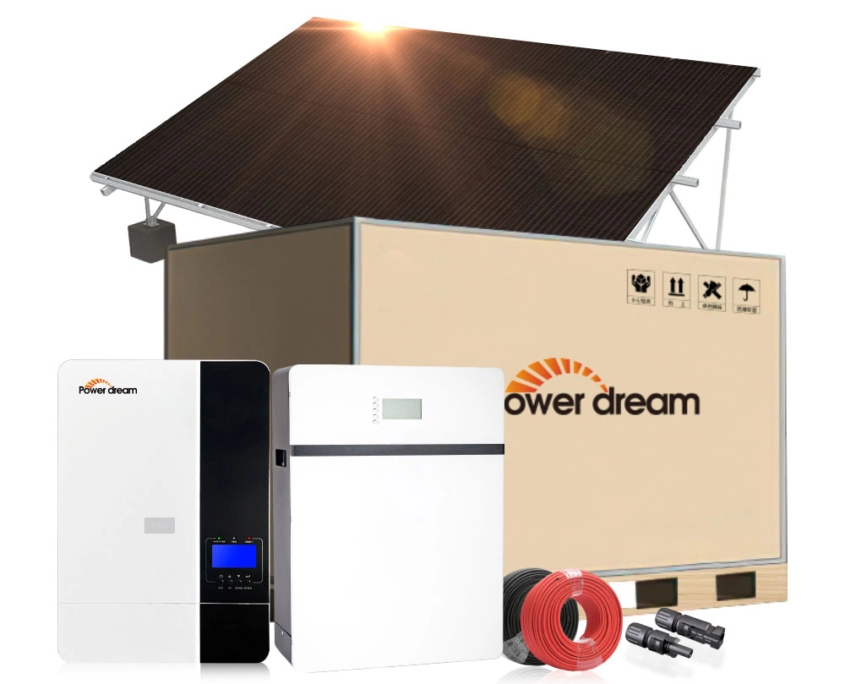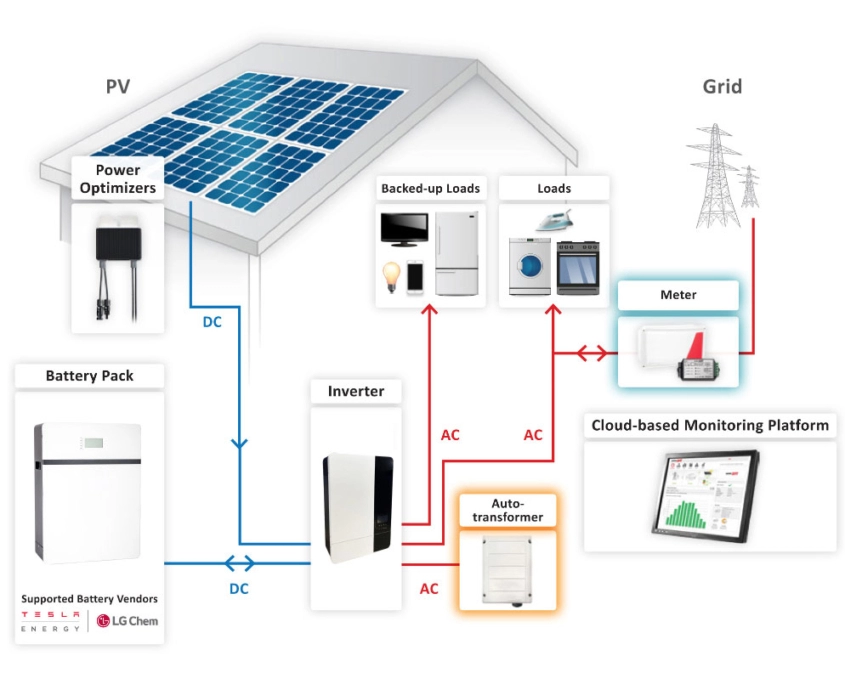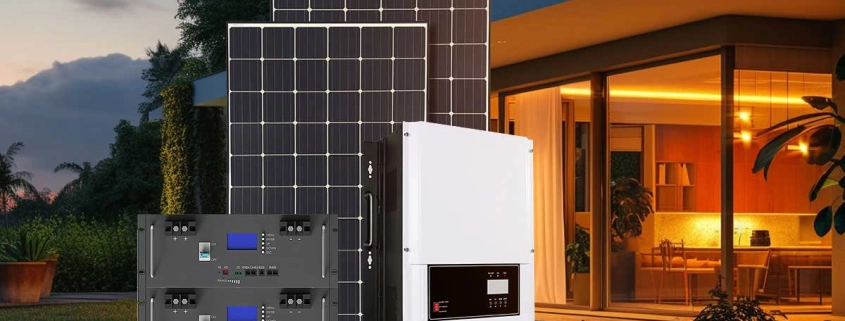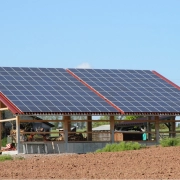How do off grid solar power system help households save on electricity bills?
As electricity prices continue to rise in different parts of the world, households of all types are constantly looking for ways to reduce their energy consumption and lower their monthly bills. One of today’s most effective solutions to achieve this goal is using an off grid solar power system. These systems provide reliable and sustainable energy that can reduce or eliminate dependence on the grid, reduce electricity costs and provide long-term savings. We will also explore how off-grid solar power systems can help households save on electricity bills. We will also look at the components of these systems, their advantages, and how to optimize them to maximize energy savings.
Grid Solar Power System and How They Work
Off grid solar power systems are self-sufficient energy solutions that operate independently of the public power grid. These systems use solar panels to capture solar energy and convert it into electricity, which is then stored in batteries at night or on cloudy days without sunlight.
Unlike on grid solar systems, off-grid solar systems are completely autonomous. This means that once the system is installed and running, homeowners can use the solar energy generated by their system without purchasing electricity from the utility company. This dramatically reduces their dependence on the grid and lowers their monthly electricity bills. Generally speaking, off-grid systems consist of solar panels, charge controllers, batteries, and inverters. Solar panels collect sunlight and convert it to DC, which is then stored in a battery. An inverter converts the DC to AC, which is the electricity most household appliances need. Households can reduce their energy costs by generating and storing their electricity.

Reduce Energy Consumption with Off Grid Solar Power System
Because off grid solar power systems generate electricity, homeowners can use solar energy to operate appliances, lights, and other appliances without relying on grid power. The household’s energy depends on the size of the off-grid solar power system and how well it is optimized. Larger systems, with more solar panels and storage capacity, can power more appliances, reducing the need to draw electricity from the grid. For example, a household can use the energy generated by solar panels to power lighting, heating, cooling, refrigerators, and even electric vehicles. By reducing their reliance on grid power, homeowners can reduce their electricity bills and lower the overall cost of energy consumption. In addition, as more efficient and innovative solar technologies become available, off grid solar power systems continue to offer more significant energy production potential.

Use Battery Storage to Maximize Solar Energy Use
When the sun is shining during the day, solar panels can generate more electricity than a household consumes. Without a battery storage system, this excess power would go to waste. However, homeowners can store this excess power with batteries and use it when the sun is not shining. This energy storage feature allows homeowners to optimize their off grid solar power systems, ensuring that solar power is available even when not generating electricity. By using energy storage during peak hours, homeowners can avoid relying on grid power and reduce their electricity consumption. Over time, this can result in significant savings on monthly utility bills. To maximize cost savings, modern battery technologies such as lithium-ion batteries are more efficient, have longer lifespans, and have greater storage capacity.

Save on Monthly Electricity Bills
The most significant benefit is the potential for substantial savings on monthly electricity bills. Homeowners can reduce or completely eliminate their reliance on the public grid by generating and storing their own electricity. This directly lowers electricity costs because the energy generated by the solar panels replaces energy generally purchased from the utility company. While the initial investment in an off-grid solar power system can be significant, the savings on electricity bills in the long run make it a worthwhile investment. In many cases, homeowners can recoup the cost of their solar system in a few years through reduced energy bills. In areas where electricity costs are high or where power outages are common, the savings potential of off grid solar power systems is even more significant.
Installation Costs and Long-Term Return on Investment
While off grid solar power systems can significantly reduce electricity bills over the long term, their installation costs depend on factors such as system size, battery capacity, and the quality of components used.
However, an off grid solar power system’s return on investment (ROI) can be very significant. The savings on electricity bills combined with incentives such as tax credits or rebates can significantly reduce the initial investment in the long term. In many cases, homeowners can expect to recoup the cost of the system within 5 to 10 years, after which they will enjoy free electricity for the remainder of the system’s life. The payback period can vary depending on energy consumption, local electricity prices, and available incentives, but generally, the long-term savings far outweigh the initial cost.
Impact on Home Energy Costs
Off grid solar power systems offer a powerful solution for homes looking to save money on their electricity bills. Homeowners can reduce or eliminate their reliance on the grid by generating and storing their electricity, saving significantly on monthly energy costs. While the initial installation cost of an off grid solar system can be high, the long-term cost savings and return on investment make it an option worth considering for many homes.





